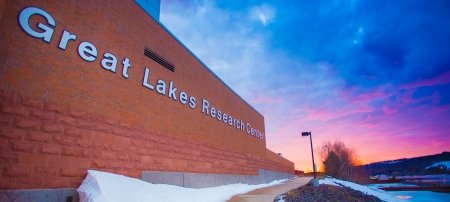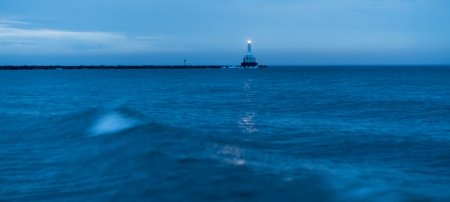New Study Evaluates Ecological, Economic Impacts of Water Use in Great Lakes Region

Michigan Technological University and Arizona State University are leading a new, three-year research study to develop a way to track water flows and water use through a watershed.
The Virtual Water Accounting project is led by Michigan Tech with guidance from an advisory board of business leaders, policymakers and watershed advocates. Principal partners include Arizona State University and the Great Lakes Commission. The Great Lakes Protection Fund is funding the study.
Water is essential for a healthy ecosystem and human society. The Great Lakes provide the foundation for billions of dollars in economic activity and are a direct source of drinking water for tens of millions of residents. The Great Lakes governors and Canadian premiers have enacted the Great Lake-St. Lawrence River Basin Water Resources Compact (the Compact) and associated Agreement (the Agreement), restricting water diversions from the Great Lakes and holding the states and provinces accountable for managing their own water resources.
But states and provinces can’t manage their water resources wisely until they understand how water moves through the watershed, the minimum water levels needed to sustain ecosystems, and how water is used by the region’s economy. To comply with the provisions of the Agreement and Compact, the states and provinces must determine whether a proposed new withdrawal and consumptive use may have a significant adverse impact to the water resource and whether the proposed use is reasonable considering economic development and environmental protection.
The new study should provide the data needed to make appropriate decisions.
Alex Mayer, principal investigator on the study and professor of civil and environmental engineering at Michigan Tech, says the project has the following objectives:
• Develop a new scientific methodology to model how water use drives the economy, alters the flow of water through the watershed and changes hydrologic conditions that sustain the ecosystem. Explore the concept of “virtual water trading” in the Great Lakes, to account for water consumed in the production of goods and services.
• Test the new methodology to quantify these relationships in select watersheds in the Great Lakes basin
• Work with an advisory board of policymakers, watershed advocates, and business and financial leaders to determine the implications of these relationships for water and economic development policy. Determine how this pilot project’s findings could be further developed and implemented to inform Great Lakes Basin water policy, including future revisions to the Great Lakes Compact and Agreement
“This project will allow us to examine relationships between water consumption and corresponding ecological impacts and economic benefits in the Great Lakes, providing an innovative framework for water resources planning, resolving conflicts among water users, and protecting aquatic ecosystems,” Mayer said.
Project Co-director Ben Ruddell and professor of engineering at Arizona State University, added: “In a world that is increasingly water-scarce and water-hungry, the well-managed water resources of the Great Lakes are a tremendous resource and source of prosperity for the region.”
More information about the study including associated papers and presentations will be made available at >Great Lakes Virtual Water.
Michigan Technological University is an R1 public research university founded in 1885 in Houghton, and is home to nearly 7,500 students from more than 60 countries around the world. Consistently ranked among the best universities in the country for return on investment, Michigan's flagship technological university offers more than 185 undergraduate and graduate degree programs in science and technology, engineering, computing, forestry, business, health professions, humanities, mathematics, social sciences, and the arts. The rural campus is situated just miles from Lake Superior in Michigan's Upper Peninsula, offering year-round opportunities for outdoor adventure.




Comments